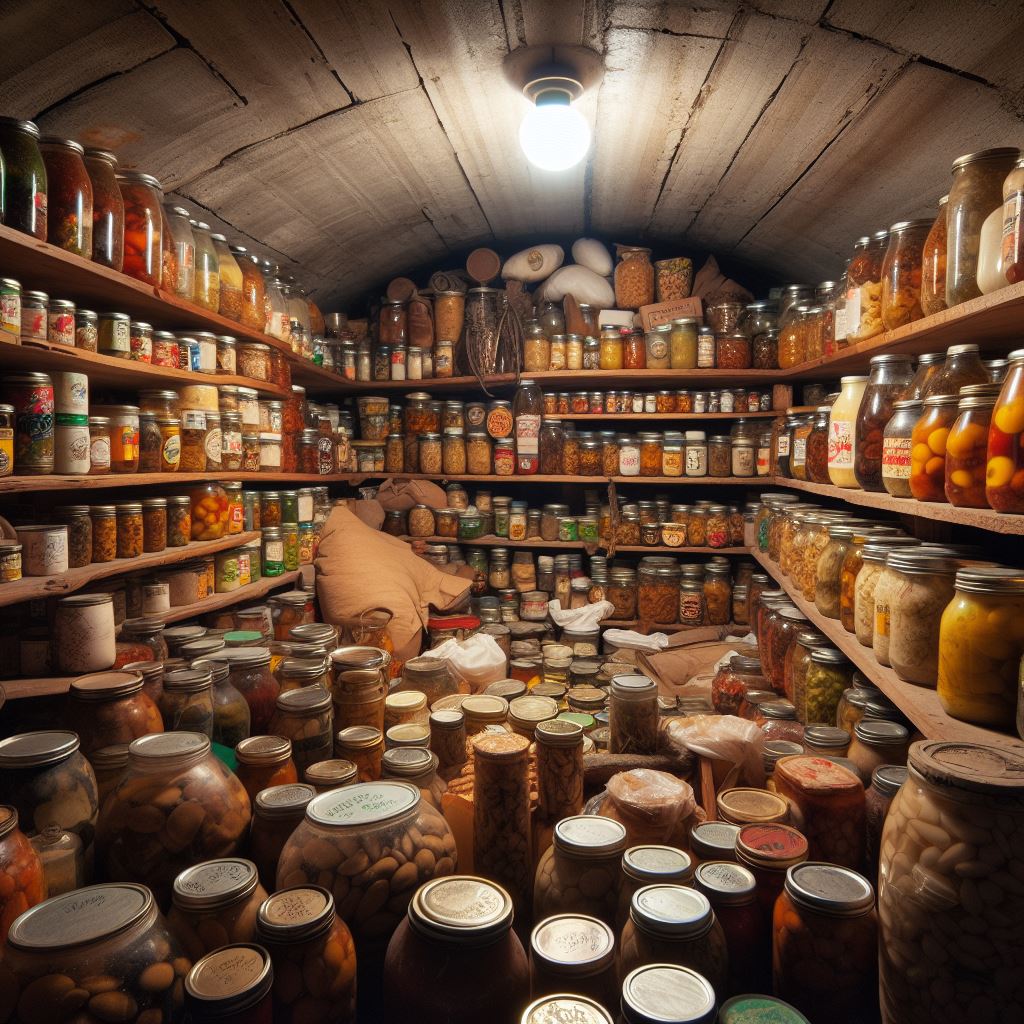Ever wondered what foods can stand the test of time? When it comes to prepping for emergencies, having a stash of foods that last for ages is key. Whether facing natural disasters, economic instability, or unexpected crises, the ability to sustain oneself and loved ones becomes a matter of utmost importance.
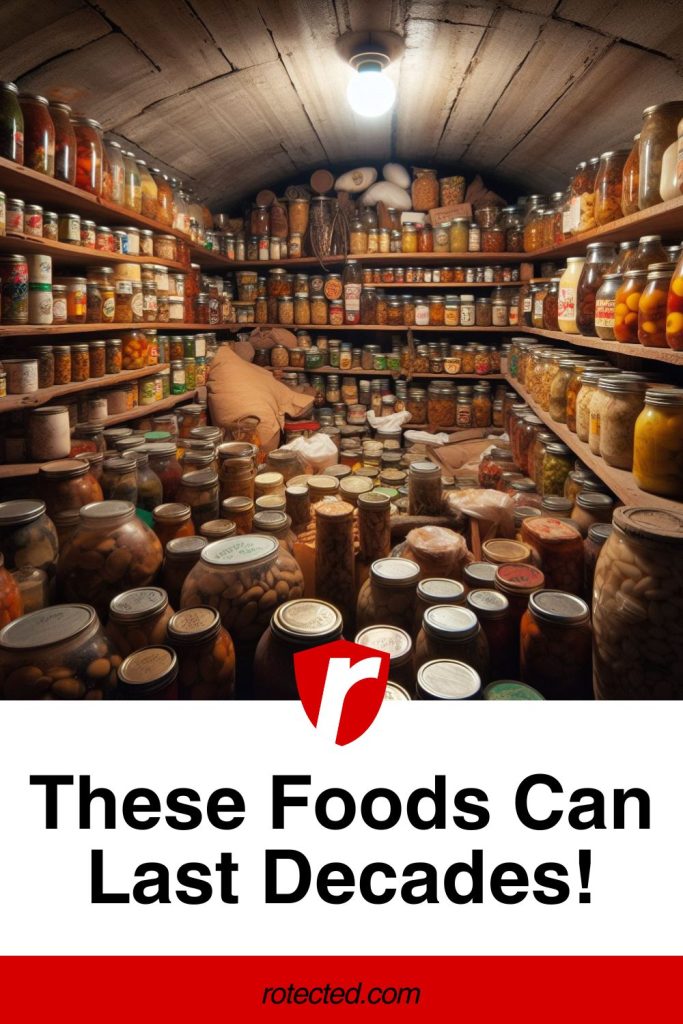
From grains and legumes to essential condiments, these foods are built to last decades when stored properly, ensuring readiness for whatever challenges may arise. Yeah, these foods are basically the superheroes of your pantry—ready to save the day whenever you need them!
Recommended Storage Items
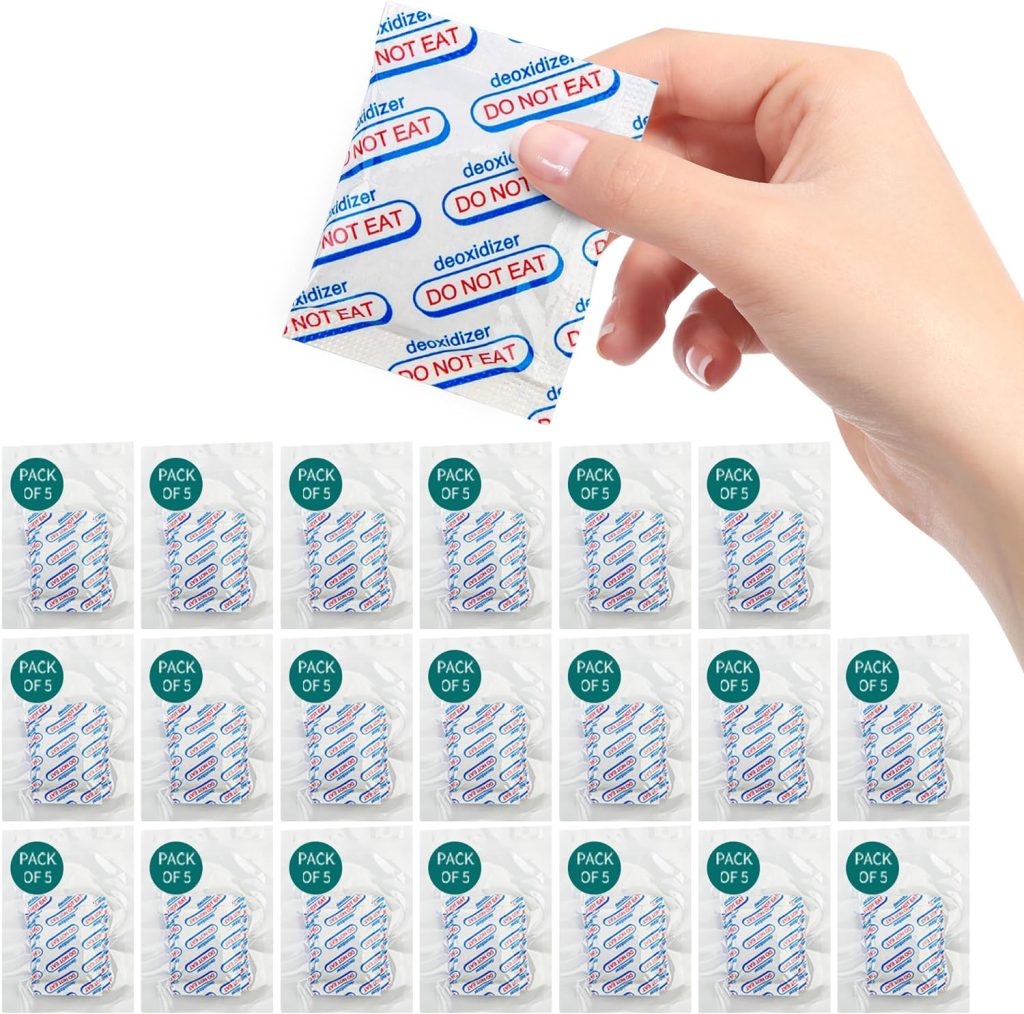
Food Grade Oxygen Absorbers
O2 Absorber for Canning & Preserving Food
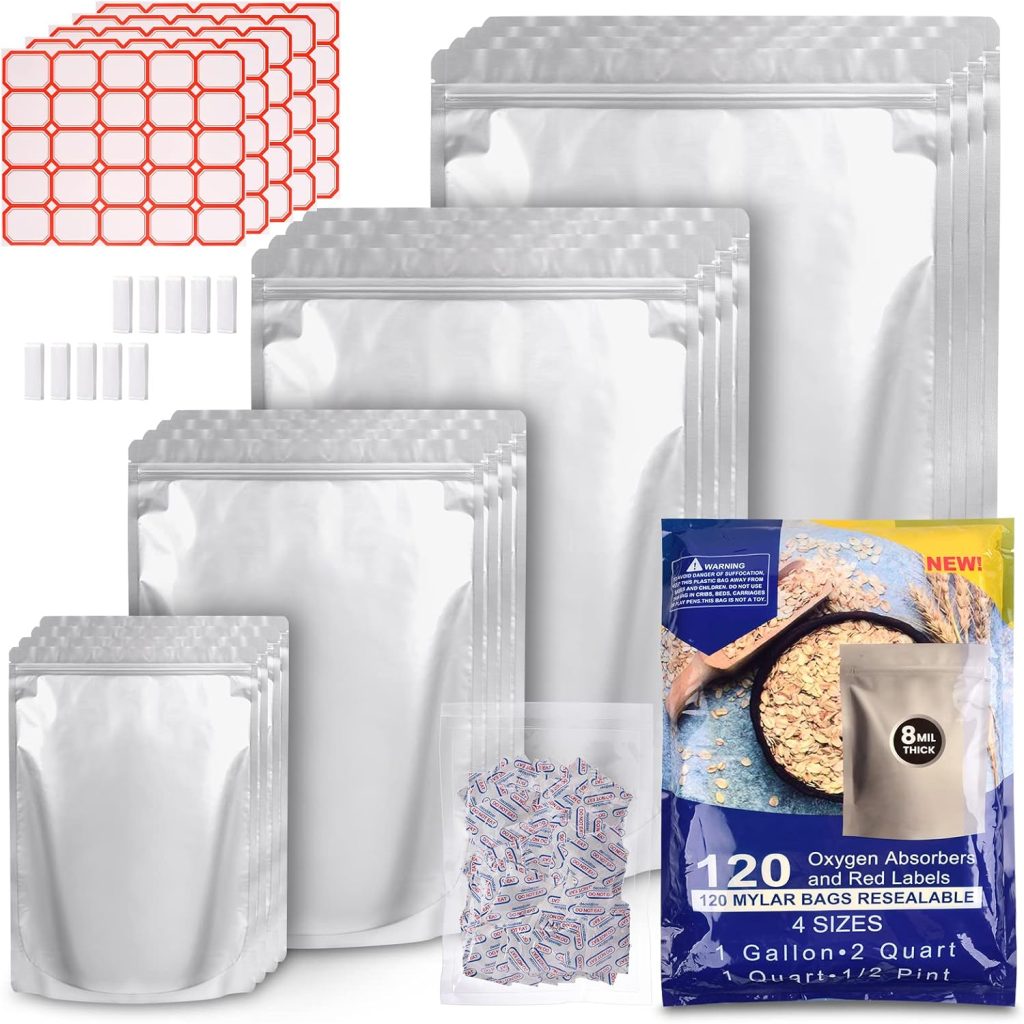
Mylar Bags for Food Storage
120 Stand-Up Zipper Resealable Bags & Heat Sealable Food Storage Bags + Labels
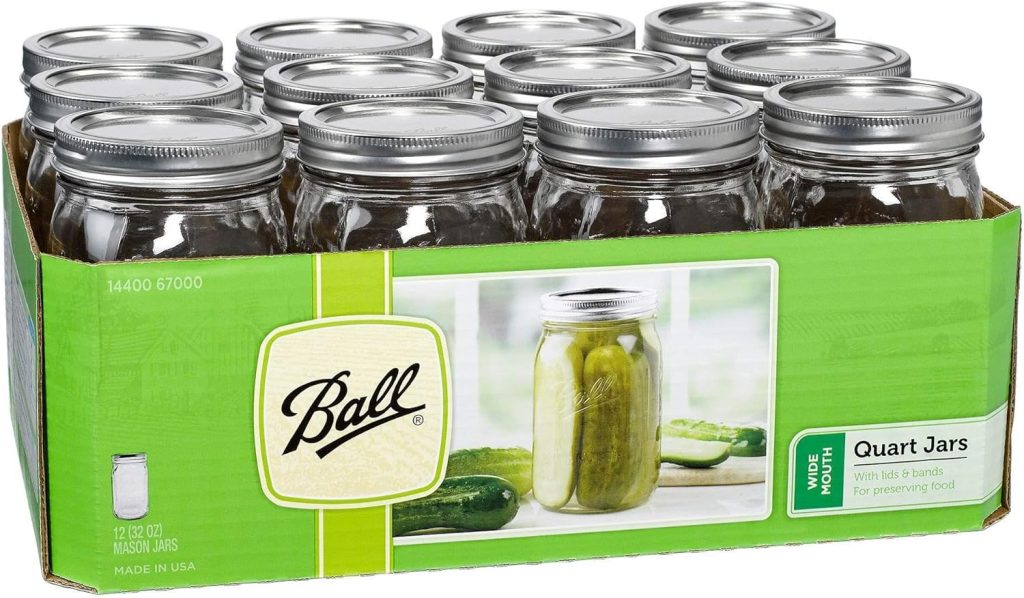
Ball Wide Mouth Clear Glass Canning Quart 32 Oz Mason Jars with Lids
Reusable glass mason jars are BPA-free
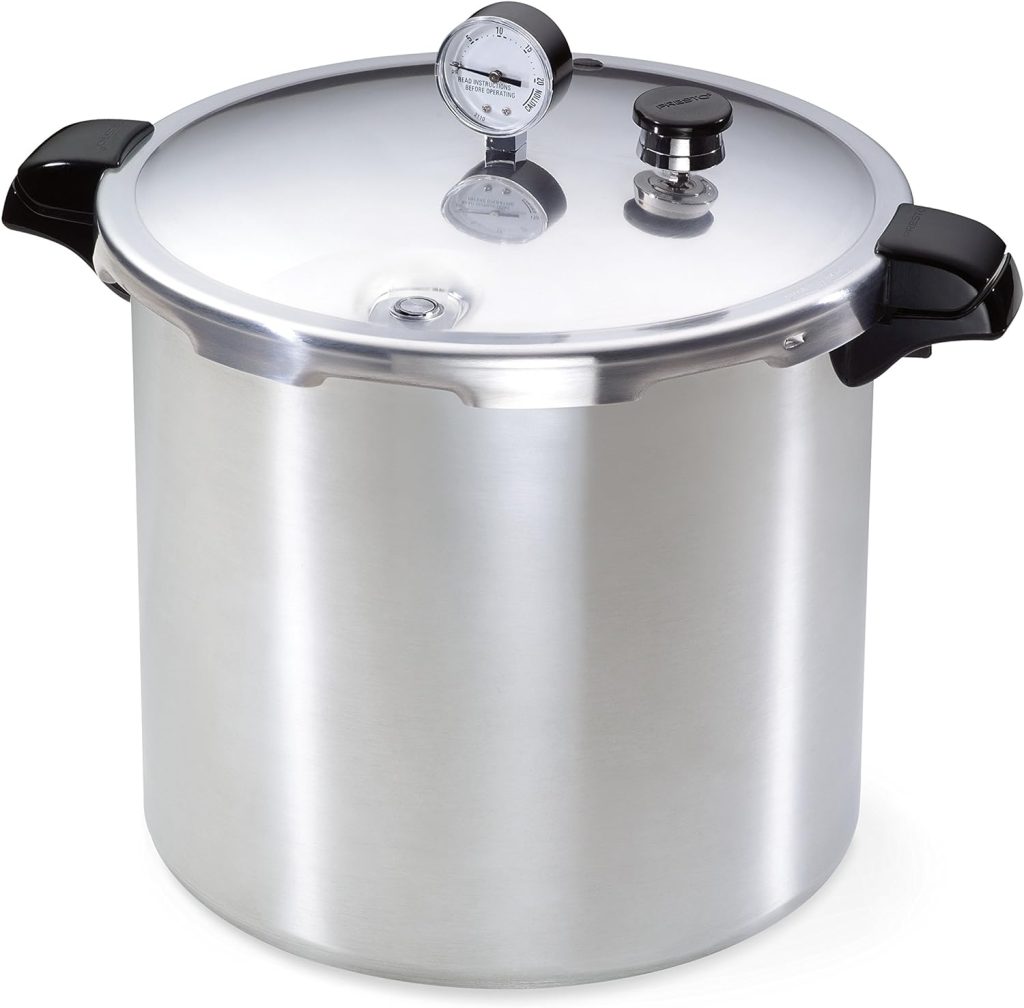
Presto 01781 Pressure Canner and Cooker
Large pressure cooker also doubles as a boiling-water canner for preserving fruits, jams, jellies, pickles, and salsa;
White Rice
White rice is a versatile staple that stores well due to its low moisture content. It’s a source of carbohydrates, providing energy for survival situations. Brown rice may have more nutrients, but it doesn’t last long and is not a good food to stock up on.
To store white rice for survival purposes, use airtight containers such as food-grade plastic buckets or Mylar bags with oxygen absorbers. Keep the containers in a cool, dry place away from sunlight and temperature fluctuations. Oxygen absorbers help extend the shelf life by removing excess oxygen. Regularly inspect stored rice for signs of spoilage and rotate stock as needed to maintain freshness.
Wheat
Wheat is a long-lasting grain packed with essential nutrients like fiber and protein. It can be ground into flour for making bread, a valuable addition to any emergency food supply.
Sugar
Storing sugar to last decades requires keeping it in an airtight container in a cool, dry place away from moisture and sunlight. Moisture can cause sugar to clump or harden over time, so it’s essential to ensure the container is tightly sealed. Some people also recommend adding food-safe desiccants, like silica gel packets, to absorb any excess moisture. Additionally, storing sugar in a dark place helps prevent discoloration and deterioration of quality. When stored properly, sugar can last indefinitely, making it a reliable pantry staple for long-term food storage.
Salt
Salt is a crucial seasoning agent and food preservative. It enhances flavors and helps to preserve other foods for long-term storage.
Powdered Milk
Storing powdered milk to last decades involves similar principles to storing sugar and other foods on this list: keeping it in a cool, dry, and airtight container away from moisture, light, and heat.
Moisture is the biggest enemy of powdered milk, as it can cause clumping and spoilage. Therefore, it’s crucial to use a container with a tight-fitting lid or vacuum-sealed bags to prevent moisture from getting in. Storing powdered milk in a dark place, such as a pantry or cupboard, helps maintain its quality and prevents exposure to light, which can degrade the milk’s flavor and nutrients over time.
Potato Flakes
Potato flakes are dehydrated potatoes that rehydrate easily with water. They can be used to make mashed potatoes or added to soups and stews.
Pasta
Pasta is a shelf-stable carbohydrate that provides energy and sustenance. It comes in various shapes and sizes and can be stored for years.
Oats
Oats are a nutritious whole grain high in fiber and protein. They can be stored for long periods and used to make oatmeal, granola, and baked goods.
Dehydrated Fruits and Vegetables
Dehydrated fruits and vegetables retain their nutritional value and flavor while having an extended shelf life. They are lightweight and ideal for snacking or adding to meals.
Dried Beans
Storing dried beans long-term for survival involves proper storage methods to ensure their longevity and nutritional value. One effective approach is canning beans, which preserves them for extended periods while retaining their taste and texture.
Begin by sorting and rinsing the dried beans, then follow the canning process using pressure canners and appropriate canning techniques. For bulk storage, place dried beans in airtight containers or Mylar bags with oxygen absorbers to protect against moisture and pests.
Store the containers in a cool, dark place to maintain optimal conditions. By canning and storing dried beans correctly, you can build a reliable supply of protein-rich food for your survival pantry.
Freeze-Dried Cheeses
Long-term storing freeze-dried cheeses for survival scenarios offers a convenient and reliable source of protein and flavor in emergency situations.
Freeze-dried cheeses are lightweight, compact, and have an extended shelf life, making them an ideal addition to any survival pantry. They retain their taste and nutritional value while being easy to store and transport.
Whether used as a standalone snack or added to soups, casseroles, or pasta dishes, freeze-dried cheeses provide essential nutrients and help boost morale during challenging times. Properly stored in airtight containers or Mylar bags with oxygen absorbers in a cool, dry place, freeze-dried cheeses can last for many years, ensuring you have access to flavorful and nutritious food when you need it most.
Honey
Honey is a natural sweetener with antimicrobial properties. It has an indefinite shelf life and can be used in cooking, baking, and as a sweet topping.
Instant Beans
Instant beans are precooked and dehydrated beans that rehydrate quickly with water. They are convenient for quick meals and emergency food supplies.
Instant Coffee
Instant coffee is a convenient source of caffeine and flavor. It dissolves easily in hot water, making it ideal for emergency situations or outdoor adventures. Who wants to go decades without coffee? No one that currently drinks coffee, that’s for sure!
Maple Syrup
Maple syrup is a natural sweetener made from the sap of maple trees. It has a long shelf life and adds a unique flavor to dishes and beverages.
Baking Soda
Stocking up and long-term preserving baking soda offers numerous benefits in survival situations. Aside from its common household uses like baking and cleaning, baking soda serves as a versatile multi-purpose item with various practical applications.
It can function as a leavening agent for bread, helping to create fluffy loaves even without traditional yeast. Moreover, baking soda’s alkaline properties make it an effective odor absorber, deodorizer, and gentle abrasive for cleaning surfaces and laundry.
Bouillon Cubes
Bouillon cubes are concentrated flavor cubes used to make broth or stock. They add depth and richness to soups, stews, and sauces and have a long shelf life.
Cocoa Powder
Cocoa powder is a staple ingredient in baking and cooking. It adds chocolate flavor to recipes and can be used to make hot cocoa or desserts.
Corn
Corn is a versatile grain that can be dried and stored for long periods. It can be ground into cornmeal or used whole in soups, stews, and casseroles.
Soy Sauce
Soy sauce is a flavorful condiment made from fermented soybeans, wheat, salt, and other ingredients. It adds a savory umami taste to a wide range of dishes, including stir-fries, marinades, and dipping sauces. Due to its high salt content and fermentation process, soy sauce has a long shelf life and can be stored for years without refrigeration.
Alcohol
Certain types of alcohol, such as spirits like vodka or whiskey, have an indefinite shelf life when stored properly. They can be used for cooking, disinfecting wounds, or as a morale booster in emergency situations.
Final Thoughts
Building a well-stocked pantry of long-lasting foods is essential for ensuring readiness in any situation. By incorporating the 21 foods outlined in this article into your emergency preparedness plan, you can rest assured knowing that you’re equipped to face whatever challenges may arise.
These foods are not only durable but also versatile, providing sustenance and nutrition when you need it most.
Remember to store these items properly using appropriate methods to maximize their shelf life and maintain their quality over time. With careful planning and preparation, you can take proactive steps towards self-sufficiency and resilience in the face of uncertainty.
Quick tip: Consider stocking up on seeds! We recommend getting seeds for some of the fastest-growing vegetables – so you can grow your own food, as fast as possible!

